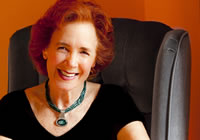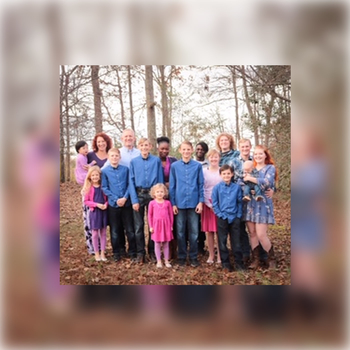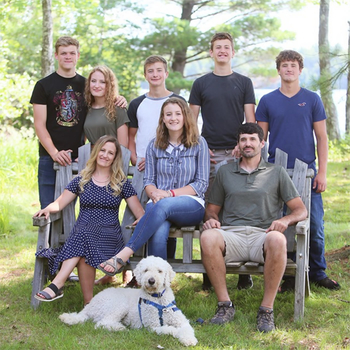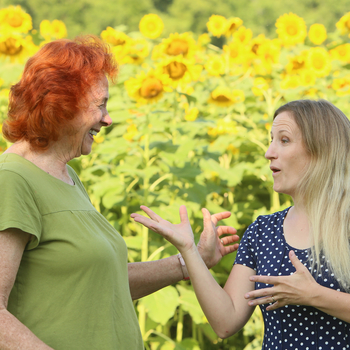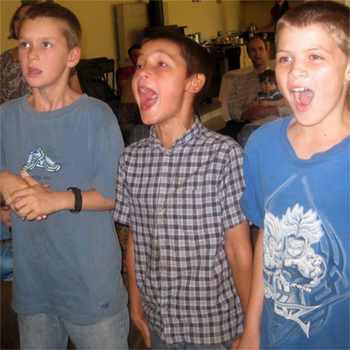PODCAST TRANSCRIPT | Episode 62 – THE JOYS AND CHALLENGES OF ADOPTION
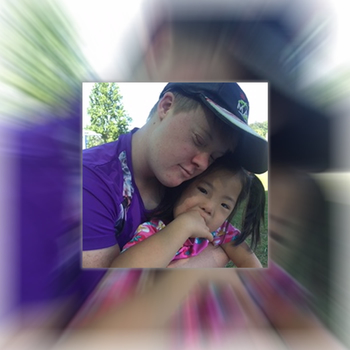
FROM OUR HOME TO YOURS w/ Nancy Campbell
Episode 62: THE JOYS AND CHALLENGES OF ADOPTION
Rocky Barrett: Welcome to the podcast, From Our Home to Yours, with Nancy Campbell, founder and publisher of Above Rubies.
Nancy Campbell: Hello ladies! Today I have Melissa with me again because we didn’t even finish her story from last week. So we’re going to continue that today.
But let me start off with a poem again. I hope you love these poems. I’ve got into the idea now of beginning each session with a poem for you as mothers.
This one is called “Help!” I know lots of times you’re calling that out, aren’t you? “Help, what do I do? Help, what do I do with these children, they’re all screaming at once? Help!”
Anyway, this poem was written by a friend of mine when we were all raising our children together.
This is what it says:
“Sometimes, dear Lord, it seems as though the children never stop,
They ask and ask and ask again until my ears near pop.
“‘Mum, fix my shoe, help brush my hair, I want another drink!
Come quickly, Mum, I think the cat has fallen in the sink!’”
“Demands, demands, and more demands, help, Lord, it’s getting tough!
I know that mothers should be kind, but this one’s had enough!
“What’s that, Lord? You mean to say these children are in your plan
To help me grow into a more mature woman?
“Dear Lord, I know You gave and gave, You had so much patience too.
Help me to see a mother’s job can make me more like You.”
Amen.
I mentioned at the end of our last session that I wanted to share a Scripture with you. So I’m going to share it with you now.
I love to give you the Word because we can talk and talk and talk, but it’s the Word that really fills us, strengthens us, and helps us get through. I couldn’t do without the Word of God. I don’t know about you, but I need it every day.
I’m so glad that we make time each day to have our family devotions every morning and every evening. When my husband is reading, so often the words come to convict me again, to speak to me, and keep me on track.
If I didn’t have the Word of God, I know I would get way off track. I’d be off on the wrong road. But every time we read the Word it brings us back.
I was thinking of this Scripture found in 2 Corinthians 4:16-18. I’ve always loved this Scripture and I’m reading it because we were talking last week with Melissa about the challenges she has faced on her motherhood journey. The challenges of not being able to keep a baby, then the challenges of a Down syndrome child, the challenges of adoption. We didn’t even get to speak about that, Melissa, did we?
We’ll see what happens in this session because Melissa also adopted as well. But we were saying how that this life we are living now, we think it’s the real life. But it’s not the real life. Our real life is in the eternal world and we were born for the eternal world. This is our destination.
This is why Jesus became human, died upon the cross, shed His precious blood to redeem us back to Himself, save us from our sin, and prepare us for this eternal world with Him which shall be forever and ever and ever.
In this world, this sinful and deceived world, we go through many problems, challenges, sufferings, and afflictions, every one of us in different ways. We face problems, we face challenges, and we face difficulties. It’s a part of life.
Sometimes these things can get us down if we let them. We can let our difficulty, affliction, and our suffering just take over our lives or we can live above it if we can only just see that these things that we go through are temporary. They are only for a season.
This life, what does the Bible say, it’s just a vapor. A vapor! It’s here and it’s gone. We think we’re here forever, no! This life is just a vapor and it’s preparing us for the eternal world. So even our difficulties and our sufferings, they will work in us, preparing us for the real world.
Here is the Scripture: “For which cause we faint not; but though our outward man perish, yet the inward man is renewed day by day. For our light affliction, which is but for a moment, worketh for us a far more exceeding and eternal weight of glory; While we look not at the things which are seen, but at the things which are not seen: for the things which are seen are temporal; but the things which are not seen are eternal.”
So often we look at the things which are seen, don’t we? Well of course, here we are, we’re facing them. They maybe all on top of us. We feel overwhelmed. Maybe even today you feel overwhelmed. You may think, “How do I get through this motherhood thing. I just don’t know how to do it.” Everything seems on top of us.
But we’re just looking at the situation. Sometimes we’ve got to get our eyes off of all the difficulties and put them on Jesus. Put them on the eternal world because when we lift our eyes from our difficulties something happens. It changes. Our attitude changes.
Often, we’re still going through the difficulties, but we can go through them. We live above them; we live through them in the power of Christ Who dwells within us because we’re looking up. We’re looking to Him and we’re looking beyond into the eternal world.
Anyway, I just love verse 17 where it gives all these adjectives. You know how I have so often told you that the Word of God is filled with adjectives. I want you keep looking for them when you’re reading the Bible because it makes it so exciting.
Nothing in the Word is normal. It’s more than normal. It’s above normal.
Here it says: “For our light affliction.” We think it’s, oh, so heavy. But God says when you put your affliction on My balances, the balances of eternity, the scale goes right up. Your affliction is just light.
The scale down here of what it’s working in us, it just goes right down. It’s so powerful.
It’s only for a moment. We think it’s forever. We say, “Oh, how can I endure this, it seems as though it’s forever.”
No, in light of eternity, it’s just for a moment. It’s working for us a FAR MORE EXCEEDING and ETERNAL WEIGHT of glory. That is five adjectives to describe the glory that God is working in us. Isn’t that amazing? Wow!
That word “far” in the Greek is the word hyperbolē and it comes from a root word that means “far beyond the usual, more than anyone can actually throw; to surpass, exceeding, super eminence, beyond measure.”
So that’s what it means when it’s saying “far.”
Then, the next word is and it’s the same word, hyperbolē, again. In fact it uses it twice to try and describe it. It’s unbelievable!
In fact, I have The Amplified Version here that describes the original Greek words. I’m going to read it to you. I want you to just take it in and let the enormity of these words fill you, especially if you’re going through a trial or a difficulty, even the everyday challenges that seem to get on top of you.
Just hear these words because, dear mothers, these words are God’s words to you. They are alive, they are powerful, l and they will impact your life if you embrace them.
Here it goes:
“Therefore we do not become discouraged (utterly spiritless, exhausted, and wearied out through fear). Though our outer man is [progressively] decaying and wasting away, yet our inner self is being [progressively] renewed day after day.
[And here is verse seventeen!] For our light, momentary affliction (this slight distress of the passing hour) is ever more and more abundantly preparing and producing and achieving for us an everlasting weight of glory [beyond all measure, excessively surpassing all comparisons and all calculations, a vast and transcendent glory and blessedness never to cease!]
Can you take all that in? Wow, I don’t think I can take all that in. This is what it’s doing in us, ladies, more and more abundantly, producing, preparing, and achieving for us an everlasting weight of glory beyond all measure, excessively surpassing all comparisons and all calculations, a vast and transcendent glory and blessedness never to cease!
This is how we’re to think when we’re going through our trials because if we let God work in us His patience, His glory, His meekness, and His humility in all that we’re going through, this is what it’s going to do for us in the eternal realm.
“Since we consider and look not to the things that are seen but to the things that are unseen; for the things that are visible are temporal (brief and fleeting), but the things that are invisible are deathless and everlasting.”
Amen?
Well I’ve got Melissa here. Goodness me, you’ve got to share!
Now we didn’t even get on to the subject of adoption last week. Melissa has also adopted two children from Liberia. Tell us about that, Melissa.
Melissa Calhoon: Oh yes, well that was actually a result of your encouragement.
NC: Oh yes, when I went to Liberia and saw the plight of these thousands of orphans I came home, and I wrote about it in Above Rubies. God must have just anointed that article because hundreds and hundreds and hundreds of parents began to adopt these precious children.
MC: Yes, yes! We were stationed in Hawaii and you came to visit us soon after you had been to Liberia. You had a photo album with all these letters that children had written asking for parents.
NC: Yes! They said, “Please adopt me!”
MC: Yes and we had planned to adopt. We kept thinking, “Later on, after we’ve had some children.” We did have three by then, I think.
I looked at my husband and said, “What are we waiting for? These children need parents now. We keep just saying, ‘We’ll wait, we’ll wait.’”
My husband was actually about to deploy to Iraq. He said, “When I get back, we’ll start the home study and all the proceedings.”
NC: I remember that when you went through all the proceedings and so on and you went to get them, wasn’t Cal deployed again?
MC: Well, no, he wasn’t deployed. We had all kinds of delays with our Liberian children waiting for their passports. You never know when you’re going to get the call, “Okay, you can go now.”
We were just waiting on the passports and meanwhile my husband had to go to Officer Training School. That’s only a three-month school I think it was.
Whenever we could we always went with him, so we moved to Virginia just for a few months. Unfortunately his father passed away during that school. They had let us take off one day to go to the funeral and you’re not allowed to have any time off.
So when we got the word that we could go pick Jeremiah and Jemima up, he still had six weeks left in the school. There was no way he could ever leave, and we had intended for him to go pick them up.
We thought, well we can make them wait six more weeks or I can go.
NC: So you went all the way to Liberia by yourself!
MC: And I was pregnant!
NC: You were pregnant?
MC: Yes, I was six months pregnant.
NC: You were pregnant, and you went all the way to Liberia on your own.
MC: Yes, and I was so thankful because I really wanted to go! It worked out to my advantage.
NC: So you brought those lovely children home. Of course now they’re growing up now. Jeremiah’s even left home now!
MC: Yes, yes, he’s 20 years old.
NC: And Jemima’s growing up into the beautiful queen.
But your adoption didn’t stop there. You then were getting to no more babies were coming.
MC: If I rewind, when I met my husband, we both said we had always wanted to adopt. We both agreed, “Yes, yay, let’s do that.”
Then God had changed my heart to adopt a child with Down syndrome. He said, “I don’t think I could handle a special needs child. I don’t think I could do that.”
Then of course God blessed us with Jahna, and she has Down syndrome. She then became Daddy’s little darling and that totally changed his heart too.
Somewhere in those years I came across a website called reecesrainbow.org and the lady who runs it has a son named Reece with Down syndrome. She began advocating for children with Down syndrome all over the world.
It’s so fun to look on that website. It is fun and heartbreaking because they have photo listings of children in orphanages. Some of the orphanages are pretty horrific and those children are very delayed.
So I came across that website and we supported them. I spent hours scrolling those beautiful little faces. That is when we thought, Yes, we will adopt a little girl with Down syndrome some time.
But the years kept going by. We kept having babies. The timing was never right. They don’t usually let you continue in adoption if you get pregnant. So the years just kept going by.
Then we got to the end, I guess, of having babies and we were here at church here, worshipping one Sunday. It was my birthday and I remember just feeling like God saying, “Okay Melissa, now’s the time.”
NC: Wow.
MC: At that point I was transitioning out of babies and thinking, “Really? Are you sure about that now? I don’t know if I want to!”
Very quickly, though, I became excited about it. That afternoon I told my husband and he is always so supportive of everything and he said, “Okay. Let’s do it!”
NC: How amazing. But it was a miracle because here you are a mother of eleven children and how are they going to let you adopt?
MC: Yes, and when I had looked at the photo listings, I had always assumed we would adopt a child or baby from Ukraine because they allow large family adoptions.
That afternoon I went on to Reece’s Rainbow, looked at their photo listings and all the children seemed to be from Asian countries. I looked at them and thought, “No, they’re not going to let us adopt. We have too many children.”
So I called a few different places and asked, “Can a large family adopt from China?”
They never said Yes or No. They just said, “You can adopt from this country and that country.”
I was getting frustrated and I’m like, “Just tell me, can we, or can’t we? Why the division?”
Finally I found in the middle of the night one time while I was online some form, I could fill in that asked my question. They sent it to every agency they have on their listing.
So I typed in, “Here’s our family dynamics, can we adopt from China?”
The next morning I had like 30 emails. Some said yes, some said no. Some said that you could have, but China just recently has become more strict.
But one lady, she actually called me. I asked her my question and she said, “Oh, I’m so sorry. China has recently become more strict. You would have been able to, but not now.”
I was just about to say good-bye and then I said, “Well it’s a real shame because we really want to adopt a little girl with Down syndrome and I really hope they might make an exception.”
She was like, “Oh! I’m so excited! I have a little girl on my listing who I really want to find a home for. Let’s just try! Let’s put in the paperwork and ask.”
You do this initial form, I forget the name, where you’re basically asking the Chinese government for permission for that specific child. If they say Yes, then you can move forward.
We did that. The next day she said, “Wait two weeks. They take two weeks.”
The very next day she called—they approve!
NC: Praise the Lord! That was an amazing miracle, wasn’t it?
MC: Yes, yes!
NC: When we heard about this little one and you named her right away, didn’t you?
MC: Yes!
NC: Another “J” of course, Jewel! I love the name, what a beautiful name!
It still took time, didn’t it?
MC: It took eighteen months.
NC: I don’t know how you could wait because I was so impatient waiting to see this little Jewel!
And then she came! She just has bonded so amazingly, hasn’t she? Tell us about that.
MC: Yes. It’s always nerve-wracking when they hand over this child to you.
NC: You both went to China, didn’t you?
MC: Yes, we both had to go. We met in the hotel lobby, the director of the orphanage and her Nanny walked in with her. She was four years old when we adopted her in November. Since then she’s turned five.
NC: She doesn’t seem that age, does she?
MC: No, she’s so much younger.
So they walked in with her and I took her by the hand. She was looking up at all these lights in the hotel lobby. I talked to her for just a minute and then I picked her up.
My husband went with them to do more paperwork signing, thumb prints everywhere, and I just sat to the side with her on my lap and started playing with her. She was giggling and laughing.
NC: How beautiful.
MC: She never showed any sign of sadness or anything.
I think there is an advantage to having Down syndrome in that. They’re not really processing the loss and the uncertainties. They’re living in the now. Now someone’s playing with me. This is wonderful!
NC: Yes, and she comes into this wonderful family of brothers and sisters all wanting to love her, hug her, and play with her. I mean, it’s a great life for her, isn’t it?
MC: Oh yes! Everybody loves her.
NC: She loves music, doesn’t she? I noticed that night she was here, keeping rhythm with the songs and everything.
MC: Yes, yes, when the music comes on, she gets happy. She sings little songs.
NC: That is just so amazing.
So what would you say to mothers who are, perhaps, interested in adopting, especially little Down syndrome children?
MC: Well obviously children with Down syndrome are close to my heart. I follow Reece’s Rainbow on Instagram.
NC: Oh, so you think that would be a good website to go to?
MC: Absolutely! You can follow people’s stories. A lot of people link their blogs to that. You can make donations for specific children. You can just look at their pictures and read their little biographies.
NC: So you see other people’s stories and their children they have adopted?
MC: Yes. There is such a need. On Instagram, daily, I see new faces.
People might look at you and think, “Wow, you’ve done this amazing thing. You’ve adopted this little girl with Down syndrome” and I just think, “It’s nothing. It’s not even a drop in the bucket. There’s hundreds and thousands of babies and children sitting in orphanages.”
Reece’s Rainbow also advocates children with other kinds of special needs, too.
NC: A lot of people have a heart to adopt. I think there are a few things to think about with adoption.
One is, is that we don’t stop having our own children in order to adopt other children. I think that is actually principle number one.
I have met families that have said, “We’re not going to have any children of our own because we’re going to adopt.”
It is a wonderful thing, of course, to adopt children and take children into your family because that is God’s heart. He says He sets the solitary in families. God wants every child to be in a family.
Sadly in this world it’s not really going to happen because there’s just so many without families today. But the ultimate plan God has is for everyone to be in a family.
Family life is healthy. In a family, that’s where you can grow to health in your soul, mind, and body. It’s healthy.
I think with children who are not in families there is so much missing. They’re out of where God intends them to be.
So you’re in the will of God to bring someone into your family. But I don’t believe we do it at the expense of having our own children because then we are disobeying the very first words that God ever gave, “Be fruitful and multiply and fill the earth.”
He was talking about coming from our womb. God wants to bring forth the children that He wants to give us from our loins and from our wombs. This is His plan.
But we can adopt, along with having other children, as the Lord leads us. I think it’s maybe a good idea to not do that too early in the beginning of your family.
What do you think, Melissa?
MC: Yes, I think definitely. I think we went into adoption pretty naively, assuming it would be easy, and we would love them like all of our children.
NC: I began to share with families about all these children in orphanages pining away in Liberia. Because of the Civil War that had been going on for years there were many orphans.
I felt that I couldn’t tell other families to adopt unless I’m prepared to do it myself. Colin and I were in our mid-sixties when we adopted, and we adopted four children from Liberia. And I think like you, our hearts were bigger than our brains.
I mean, you have this heart of love and you have this wonderful family life and you think, “Oh, I just want to bring other children in to embrace and enjoy this family life that we have.”
But often when they come in, they’re not so excited to enjoy your family life as you are about bringing them into it.
Did you find that?
MC: That’s right, yes, and our children were three and eight years old. I think that them being younger was definitely way easier than your experience.
But I remember calling you once, just feeling like I thought I would love them exactly the same way.
I had spoken to adoptive mothers who say they do feel that way, but I also have spoken to more who say they don’t. You feel guilty because you really want to and yet you don’t.
So I was talking to you about that once and you said, “Melissa, it’s not natural mothering. It’s supernatural mothering.”
NC: And it is, because you are going beyond the natural. Because when you have a child from your womb it just is so very automatically natural, isn’t it?
MC: Yes, yes.
NC: It’s just there. No matter what that child does, you’re going to love that child through anything.
MC: Yes, you don’t have to choose it, yes.
NC: But then when children come, often what it is, is I think the rejection of your love that makes it harder. It’s not that you don’t love those children, but it happens a lot in adoptions . . . there is even a subconscious rejection of your love.
I remember reading a book. I didn’t read it before adoption, though I wish I had. I read it later; it’s called “The Primal Wound.”
If you’re thinking about adoption, I would encourage you to read that book. In this book it reveals that in every child there is something there within them that longs for their mother. It’s a very powerful, powerful, powerful connection.
Even mothers who are evil, who could have murdered, that child could . . . still thinks that mother is the most amazing person in the world. I mean, they don’t know them, and they could have been a murderer, but they just have in their brain that this mother must be so amazing because it’s just there.
Often, too, these precious children can subconsciously take out on you, their adoptive mother, all the rejection on you that they had from their mother growing up (or that they never received from their mother because she wasn’t there). So you bear the brunt of that.
Looking back, we went through lots of challenges. Our children have grown, and we love them. They’re now out of the home with their own children now.
I look back and yes, we went through challenges, but I would do it all over again. I would never not have done it.
What would you say?
MC: I would absolutely do it again!
NC: You would never not have done it?
MC: Yes. And we didn’t go through nearly any major struggles, just what you said.
It’s difficult because our children didn’t really act out in any behaviors or anything. But you do sense, what you said, that rejection. And that’s what makes it easier with Jewel because she’s just arms wide open, lapping up any affection and love you give her.
NC: And that’s something about motherhood is the reciprocal love. You get that at times from your adopted children, but you know, and you sense that they’re going through difficult times. You know there’s that thing there because it’s just natural.
You have to be prepared for that when you adopt so you’ve got to love beyond that.
You’re loving beyond what you’re getting from them. That’s where it becomes that supernatural mothering.
But it’s still worth doing. Amen?
MC: Yes!
NC: Oh, bless you, ladies. Let’s pray.
“Father, we thank You that we’ve been able to talk about something that’s so precious to Your heart because You want every child in a family.
“We thank You that You’ve adopted us into Your family. You have the heart of adoption.
“Father, I pray for mothers today who have adopted children. Some of them are going through difficulties and trials. We have our beautiful times, but then there are the difficult times.
“So many of these precious children have been abused, hurt, and rejected. They often just take all these emotions out on the one that’s the closest to them and loves them the most.
“I pray You will give them strength. I pray that You will give them wisdom. I pray that You will help them to see that, Lord, they are doing something that is beyond natural mothering. They’re supernaturally mothering. Lord, that You would anoint them to do this in the power of Your Holy Spirit I pray.
“And those who are thinking about it, I pray that You would lead them and guide them. Give them wisdom; show them the right time because You have the right time for everything, Lord.
“Give them Your wisdom I pray, in the name of Jesus, Amen.”
P.S.
To learn more about
REECE’S RAINBOW – SPECIAL NEEDS ADOPTION SUPPORT
THIRTEEN YEARS and 2065+ children HOME!
Go to: https://reecesrainbow.org/
Facebook: https://www.facebook.com/groups/officialreecesrainbow/
Instagram: Reece’s Rainbow
To order the book of poems:
QUIET REFLECTIONS FOR MOTHERS
Go to: http://aboverubiesbookstore.mybigcommerce.com/quiet-reflections-for-mothers-101-poems/
THE PRIMAL WOUND
Understanding the Adopted Child
By Nancy Newton Verrier
